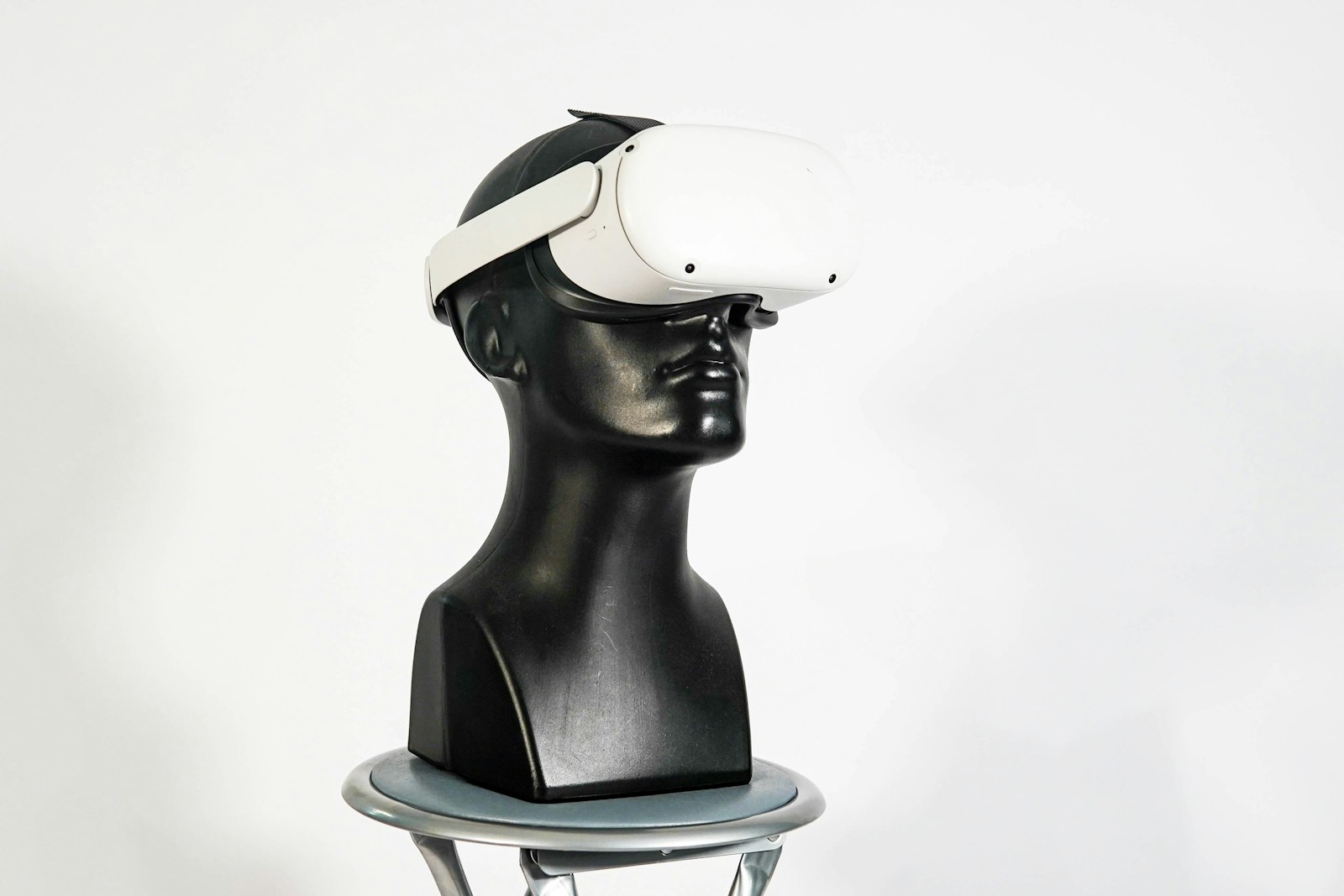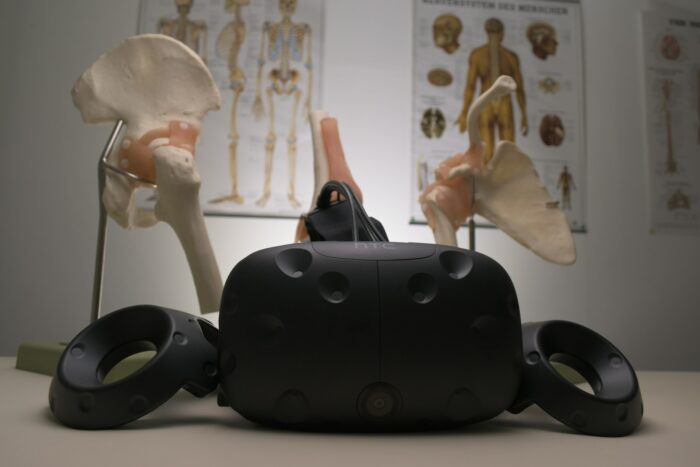In the rapidly evolving landscape of education and professional training, virtual reality (VR) technology has emerged as a transformative force. As we start the year, the integration of VR into training programs has reached new heights, offering immersive and effective learning experiences like never before.
From corporate training to classroom education, VR training companies are revolutionizing the way we learn and acquire new skills. In this article, we explore the top VR training companies leading the charge in 2024, reshaping the future of learning with innovative solutions and cutting-edge technology. Join us as we delve into the forefront of VR education and discover how these companies are redefining the learning experience for individuals and organizations alike.
Top VR Training Companies
1. 3spin Learning
3spin Learning is a pioneering VR company in the realm of training and education, leveraging immersive VR technology to transform learning experiences. Positioned as a leading EdTech firm, it offers a state-of-the-art Virtual and Augmented Reality (VR & AR) learning platform that democratizes the creation of immersive training content. What distinguishes 3spin Learning is its dedication to inclusivity; individuals, regardless of their programming proficiency, can develop and oversee courses affordably through their platform or accredited partners.

Acknowledged as a trailblazer in mixed reality by industry giant Microsoft and honored multiple times with the esteemed eLearning Award, including the prestigious “project of the year 2020,” 3spin Learning boasts an impressive roster of clients, counting Lufthansa, Merck, and DEKRA among them.
Furthermore, learners can conveniently access content via VR & AR headsets or PCs without headsets, rendering learning experiences more flexible and accessible. The platform integrates with Learning Management Systems (LMS), facilitating easy deployment and the measurement of learner success. With disclosed funding exceeding $2.2 million and support from investors like BM H Beteiligungs-Managementgesellschaft Hessen, 3spin Learning remains at the forefront of immersive education innovation, making VR learning engaging, effective, and scalable for organizations globally.
Visit company’s profile page.
2. Inspirit
Inspirit stands out as a groundbreaking VR experiential learning platform, offering students engaging simulations and 3D models. Supported by Stanford University’s Virtual Human Interaction Lab researchers, it delivers a curated collection of age-appropriate XR experiences aligned with educational standards. Covering a range of subjects like math, physics, chemistry, biology, and vocational training, Inspirit provides a holistic educational solution.
Accessible across multiple devices including laptops, Chromebooks, and educational VR headsets, students can explore a diverse library of content. Notably, Inspirit offers fully provisioned VR headsets without requiring Facebook accounts. With a disclosed funding of $3.6 million and support from investors like Sierra Ventures, January Ventures, SeedFolio, Roble Ventures, and AME Cloud Ventures, Inspirit remains at the forefront of immersive VR education, enriching learning experiences for students across various fields.
Visit company’s profile page.
3. ORamaVR
ORamaVR is on a mission to promote the widespread adoption of medical VR training globally. They seek to achieve this goal by democratizing VR metaverse content creation and offering the MAGES-SDK IT platform to medical institutions. This platform enables the efficient production of high-quality medical Virtual Reality Simulations at a significantly reduced cost and time compared to current methods. These simulations are essential tools for training and evaluating medical professionals and are utilized by hospitals, medical device companies, medical schools, and training centers.
With a disclosed funding of $3,348,354 and support from investors including the European Commission, Foundation for Research and Technology, FONGIT Innovation Fund, Epic Games, and the European Regional Development Fund (ERDF), ORamaVR is positioned to revolutionize medical training through immersive VR technology.
Visit company’s profile page.
4. Vantage Point
Vantage Point specializes in immersive training experiences using Virtual Reality (VR), particularly for Enterprise training. Their fundamental belief is that immersive technology can foster empathy, countering any potential apathy from other technological forms. At the heart of their mission is the aim to utilize technology for empowering individuals in their personal growth and self-improvement journey. Vantage Point actively works on developing a platform and products aimed at teaching and inspiring individuals in emotionally intelligent (EQ-driven) and Soft Skills, which are highly valued.
With a disclosed funding of $4,430,000 and backing from investors like Google for Startups Black Founders Fund, Bá Minuzzi, Chingona Ventures, among others, Vantage Point is dedicated to advancing immersive VR training solutions that prioritize human connection and individual development.
Visit company’s profile page.
5. VictoryVR
VictoryVR provides virtual reality science curriculum tailored for tutoring, supplemental education, and classroom instruction. Leveraging two decades of expertise in developing web platforms, mobile apps, and cloud-based technology tools, VictoryVR prioritizes content creation and fundamental technology solutions. Their aim is to transport users from their current environment to various locations worldwide, where learning and information acquisition approach a level of realism akin to being physically present.
With a disclosed funding of $1,250,000 and the latest funding received on January 7th, 2022, VictoryVR is committed to advancing immersive educational experiences that transcend traditional learning boundaries.
6. Three Space Lab
Three Space Lab, an early-stage company born out of MIT Media Lab, specializes in crafting software solutions for virtual reality (VR) and augmented reality (AR) applications within the realms of education, training, and workplace learning.
Their primary focus is on interactive simulation applications, spanning projects from electricity and magnetism to crystalline structures, 3D scanning, and tools for brand visual design. With a team of designers and engineers, their shared goal is to construct cutting-edge collaborative spatial computing systems. Drawing upon their extensive experience in multi-user virtual reality and scientific visualization, Three Space Lab is dedicated to advancing immersive learning experiences.
Visit company’s profile page.
7. VR Lab Academy
VRLab Academy specializes in delivering advanced virtual science education solutions tailored for institutions. Their focus lies in providing waste-free, engaging, and practical designs to facilitate cutting-edge virtual science education experiences. With an ultimate aim to enrich the educational VR landscape, VRLab Academy empowers students to enhance their scientific skills and acquire firsthand knowledge in the subject matter.
With a disclosed funding of $11,320,000 and support from investors such as Heaventures, TechOne VC, hiVC, Lima Ventures, Teknoloji Yatirim, and Ahmet Bilgen, VRLab Academy is poised to continue revolutionizing science education through immersive virtual experiences.
Visit company’s profile page.
Challenges and Opportunities VR Training Companies face
In the realm of virtual reality (VR) training, companies confront a distinctive array of obstacles and prospects as they endeavor to innovate and cater to the needs of learners and organizations. Here, we explore the primary challenges and opportunities shaping the trajectory of VR training companies:
Technological Advancements: The rapid advancement of VR technology presents both a challenge and an opportunity for companies in this space. Staying abreast of the latest developments necessitates investment in research and development to harness cutting-edge features like enhanced graphics and realistic simulations, ultimately enhancing training effectiveness.
Cost and Accessibility: Despite declining hardware costs, accessibility remains a significant hurdle, particularly in budget-constrained settings. Companies must explore cost-effective solutions to widen access to VR training, catering to diverse audiences including educational institutions and small businesses.
Content Development: Crafting high-quality, engaging VR training content demands specialized expertise and resources. Collaboration with subject matter experts is essential to ensure content relevance and accuracy, while adaptability to different learning styles offers a means of differentiation.
Integration with Learning Management Systems (LMS): Seamless integration with existing LMS platforms is pivotal for efficient deployment and management of VR training programs. Prioritizing interoperability facilitates easy access and progress tracking for learners.
Data Privacy and Security: Safeguarding user data in VR training environments is paramount. Companies must implement data protection measures and comply with regulations to instill trust among users.
Market Competition and Differentiation: Intensifying competition underscores the need for differentiation through innovation and strategic partnerships. Exploring niche markets and specialized applications can unlock new growth avenues.
Learning Effectiveness and Evaluation: Demonstrating the efficacy of VR training requires rigorous evaluation methodologies and feedback mechanisms. Continuous improvement is facilitated by analytics tools and responsive adaptation to learner needs.
The Future Outlook for VR Training Companies
Looking ahead, the future shines bright for VR training companies, propelled by the increasing accessibility of VR technology and its widespread adoption across industries. As businesses adopt immersive training, VR companies are set to transform workforce development and skill improvement.The integration of AI and ML promises personalized learning experiences, while a shift towards social and collaborative learning fosters deeper engagement.
Augmented reality’s inclusion, coupled with a focus on soft skills development, underscores the versatility of VR training. Continued innovation in content creation and enhanced data analytics further solidify VR’s role in shaping the future of education and training. As VR training companies continue to evolve, they stand at the forefront of a new era in learning.
If you found this article to be informative, you can explore more current Digital Twin news here exclusives, interviews, and podcasts.














